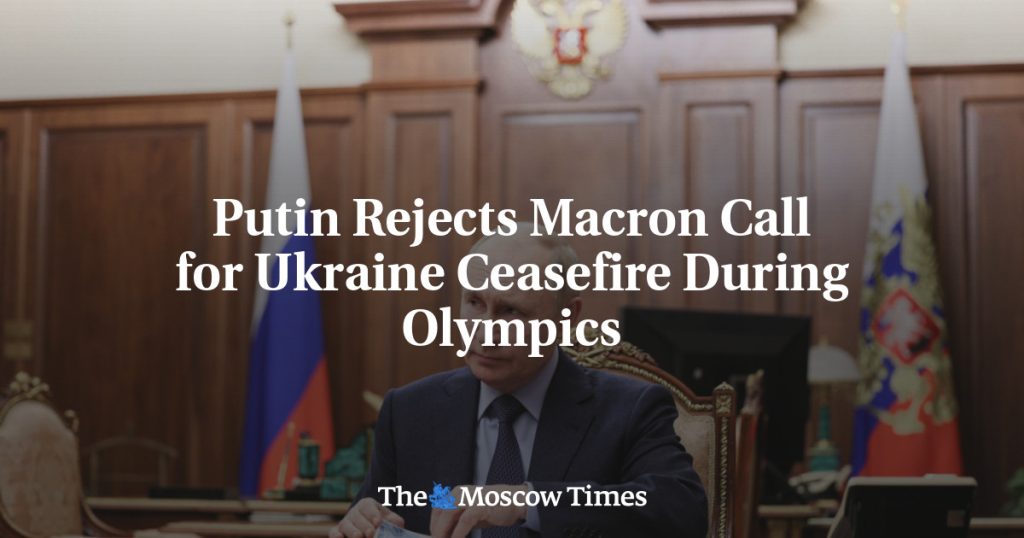Russian President Vladimir Putin expressed his opposition to calls for a ceasefire in Ukraine during the Summer Olympics, citing the unfair treatment of Russian athletes. He supported the idea of an “Olympic truce” but criticized international sporting bodies for not allowing Russian athletes to compete under their own flag and anthem. Putin emphasized that Russia would not comply with demands while facing violations themselves. French President Emmanuel Macron reiterated the call for an Olympic truce, urging Russia to cease its operations in Ukraine. Russia and Belarus, both banned from competing in the Olympics as nations, plan to hold a separate sporting event in September.
Macron previously thanked Chinese President Xi Jinping for supporting the idea of a truce in all conflicts, including the situation in Ukraine, during the upcoming Paris Olympics. Despite the ongoing tensions and international pressure, Putin’s stance indicates that Russia is not willing to back down from its actions in Ukraine. The exclusion of Russian and Belarusian athletes from the Olympics has fueled a sense of defiance, leading to plans for an alternative sporting event. The rejection of calls for a ceasefire during the games suggests that the conflict in Ukraine remains a priority for the Russian government, regardless of diplomatic efforts to promote peace.
The broader context of the situation underscores the complex dynamics at play, with international sporting events becoming entangled with geopolitical tensions. The controversy surrounding the participation of Russian athletes brings to light the intersection of sports and politics, as well as the consequences of violations of the Olympic charter. Putin’s refusal to comply with calls for a ceasefire reflects a broader refusal to adhere to international pressure, highlighting Russia’s assertiveness in pursuing its interests despite backlash from the international community. The proposed rival sporting event in September signals a defiant response to the Olympic ban, further escalating tensions in the region.
The ongoing conflict in Ukraine, coupled with the diplomatic fallout from the situation, continues to shape international relations and test the boundaries of normative behavior in the global arena. The dispute over the participation of Russian and Belarusian athletes in the Olympics highlights the ways in which sports can be utilized as a tool for geopolitical influence and national pride. Macron’s persistence in promoting an Olympic truce reflects the commitment of certain world leaders to use international events as platforms for peace and conflict resolution. However, Putin’s remarks indicate a reluctance to engage in such diplomatic initiatives, prioritizing Russia’s interests above international calls for cooperation.
Overall, the refusal of Russia to comply with calls for a ceasefire during the Summer Olympics underscores the ongoing tensions surrounding the conflict in Ukraine. The exclusion of Russian and Belarusian athletes from the games has become a symbol of defiance and national pride, leading to further polarization in the international community. The competing narratives and responses to the situation highlight the complex interplay between sports, politics, and diplomacy in shaping global affairs. As the diplomatic efforts continue, the stance of key leaders such as Putin and Macron will play a crucial role in determining the trajectory of the conflict and the prospects for peace in the region.


